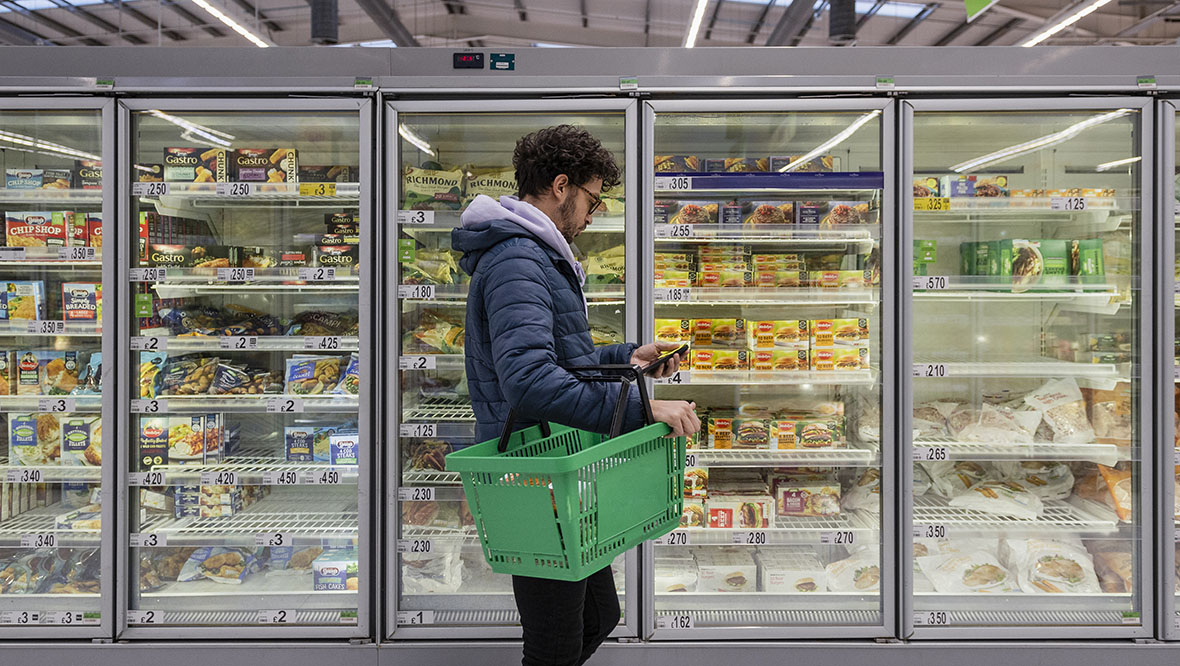Food inflation has risen to its highest point in 11 months as the price of everyday essentials including bread, meat and fish increased, figures show.
The price of food is now 2.6% higher than a year ago, up from 2.4% in March, according to the British Retail Consortium (BRC)-NIQ Shop Price Index.
Fresh food is now 1.8% more expensive than last April, up from 1.4% in March.
The BRC has already said it expects food inflation to hit 4% by the second half of the year amid geopolitical tensions and a £7bn increase in costs from the autumn Budget.
The BRC’s latest figures show shop prices overall were down 0.1% on last April, up from a decline of 0.4% in March.
BRC chief executive Helen Dickinson said: “The days of shop price deflation look numbered as food inflation rose to its highest in 11 months, and non-food deflation eased significantly.
“Everyday essentials including bread, meat, and fish, all increased prices on the month. This comes in the same month retailers face a mountain of new employment costs in the form of higher employer National Insurance Contributions and increased National Living Wage.
“Despite price competition heating up, retailers are unable to absorb the total impact of these £5bn of employment costs and the additional £2bn costs when the new packaging tax comes into effect in October.
“It is crucial that poor implementation of the upcoming Employment Rights Bill does not add further pressure to costs – pushing prices further up, and job numbers further down.”
Mike Watkins, head of retailer and business insight at NielsenIQ, said: “Shoppers continue to benefit from lower shop price inflation than a year ago, but prices are slowly rising across supply chains, so retailers will be looking at ways to mitigate this as far as possible.
“And whilst we expect consumers to remain cautious on discretionary spend, the late Easter will have helped to stimulate sales.”
Earlier this month, Tesco signalled that a price war was mounting within the supermarket sector, with the UK’s largest grocery chain saying it expected to make as much as £400m less in profit next year as a result of what it called “a very competitive market”.
Follow STV News on WhatsApp
Scan the QR code on your mobile device for all the latest news from around the country


 iStock
iStock

























